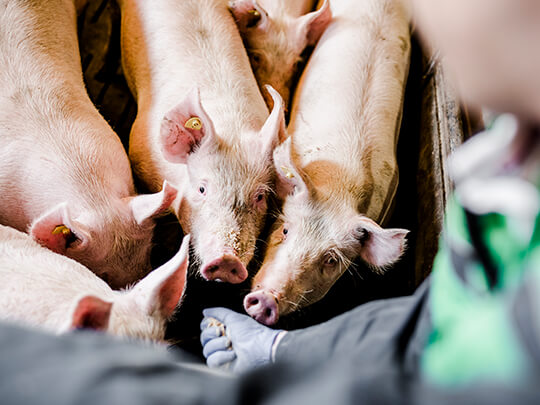Phytogenics as nutritional strategy: Optimizing pork production that resonates positively in premium pork export markets
The U.S. producers face the challenge of optimizing pork production and simultaneously meeting pork consumer’s demands and expectations in the local and export markets. This article will provide some insights about nutritional strategies that can be applied in swine nutrition programs, contributing to optimize production performance while resonating positively with meat consumers, with a special focus on the Japanese market.
Japanese consumers: Pork on the rise

In 2020, the United States exported 29% of its total pork production. The total volume of last’s year exports was over 6.56 billion pounds of pork worth over $7.7 billion (1). Japan has been among the top destinations for U.S. pork along with China and Mexico. In 2020, the U.S. exported 852 million pounds to Japan worth $1.6 billion representing one-third of Japan’s total pork imports (2). Top pork products exported from the U.S. to Japan include loins, tenderloins, picnics, spareribs, back ribs, jowls, cushion meat, bellies, hams, ground seasoned pork, and sausages. In 2020, ground seasoned pork was the U.S. pork product with the greatest growth in the Japanese market (3).
Pork is one of the most highly preferred protein choices for Japanese consumers. Some of the most popular pork dishes in Japan are “tonkatsu” and “shabu-shabu” which are prepared with Boston butt and loin, respectively (4). Japanese consumers are highly concerned about food safety and traceability, well educated about food, highly brand conscious; and care a great deal about seasonal food and freshness (5).
Opportunities for U.S. producers

The Japanese have experienced a shift in consumption towards more poultry, pork, and beef, and less seafood. This change is due to a lower available supply of seafood (6). The demand for pork products by the Japanese market will continue to increase opening more opportunities for U.S. producers to position pork products in this market. Another advantage for U.S. pork producers is the current U.S.-Japan Trade Agreement which supports the competitiveness of U.S. pork products. Even though U.S. pork represents one-third of Japan’s total pork imports and has most of the chilled pork market, the Japanese market remains very competitive due to the presence of other global producers.
The U.S. producers need to maintain efficiency in pork production to maximize profitability and satisfy the growing demand by global markets such as the Japanese market. Nutritional strategies such as phytogenic feed additives can be used in swine nutrition to maximize performance while positively echoing with meat consumers (7).

Natural support pays off
Phytogenics are safe and effective feed additives derived from natural compounds extracted from herbs and spices. Due to its natural origin, phytogenic feed additives can help build a safe bridge along the farm-to-fork chain. Recent studies continue to validate the efficacy of this type of additive on performance and production efficiency. Two studies conducted under U.S. commercial research conditions showed that dietary supplementation of a well-formulated phytogenic feed additive, in finishing pigs improves ADG by 4% and final BW by 1.6 Kg compared to a control diet and improvement of 2.1% in feed conversion rate compared to a control diet (8,9).
To conclude, the demand for pork products by the Japanese market will continue to increase and U.S. producers need to rely on nutritional strategies that enhance production efficiency but at the same time that resonate positively with meet consumers in order to maximize profitability and remain a key player in the global pork supply chain.
References upon request.

Kory Moran
Dr. Kory Moran earned a Ph.D. in swine nutrition at North Carolina State University. She has been involved in the swine industry for the last 8 years. She has been conducting applied and practical research work focused on the use of fiber, enzymes, and phytogenics feed additives in swine nutrition. She joined Delacon in January 2017. Currently, in her role, she provides technical support to swine producers in North America and Latin American markets.










